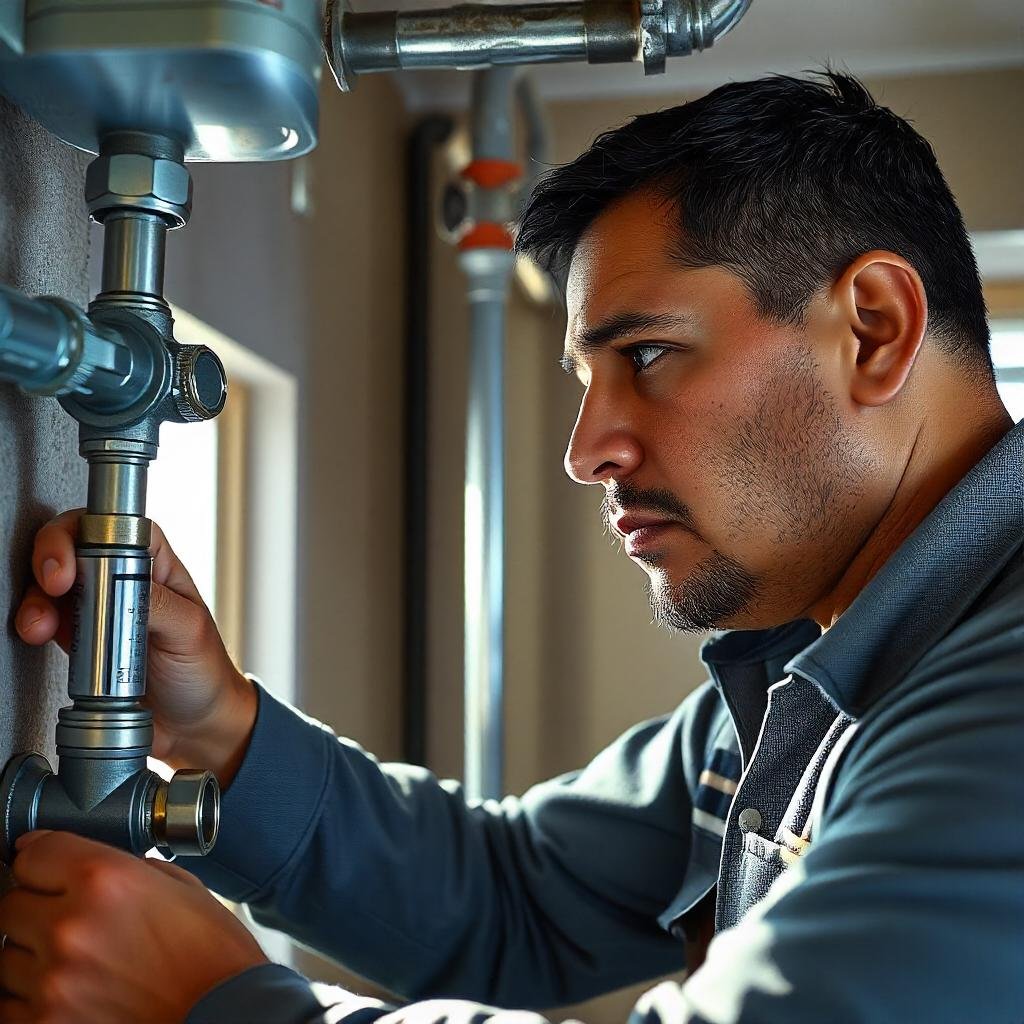
Plumbing maintenance is an essential aspect of homeownership and property management that often gets overlooked until a problem arises. Regular maintenance of your plumbing system can save you time, money, and stress while ensuring your home or business operates smoothly. Whether you're a homeowner, a landlord, or a facility manager, this guide will walk you through the importance of plumbing maintenance, key practices, and professional tips to keep your plumbing in optimal condition.
Why Plumbing Maintenance is Important
A well-maintained plumbing system is vital for several reasons:
1. Prevention of Costly Repairs
Unaddressed plumbing issues, such as leaks or clogs, can escalate into expensive repairs. Routine maintenance helps identify and resolve problems before they worsen.
2. Extended Lifespan of Plumbing Systems
Regular maintenance ensures that pipes, fixtures, and appliances last longer, saving you the expense of premature replacements.
3. Improved Water Efficiency
A maintained plumbing system prevents water wastage through leaks or inefficient fixtures, reducing water bills and conserving resources.
4. Health and Hygiene
Proper plumbing maintenance ensures clean water supply and prevents issues like mold growth or sewage backups, which can pose health risks.
Key Plumbing Maintenance Practices
Effective plumbing maintenance involves regular inspections, cleaning, and repairs. Here are some essential practices to include in your routine:
1. Inspect for Leaks
Regularly check faucets, pipes, and fixtures for leaks. Even a small leak can waste gallons of water and lead to higher utility bills.
-
Tip: Use food coloring in toilet tanks to check for hidden leaks. If the color appears in the bowl without flushing, you have a leak.
2. Clean Drains Regularly
Prevent clogs by cleaning drains with non-corrosive solutions. Avoid pouring grease, oil, or large food particles down the drain.
-
DIY Solution: Mix baking soda and vinegar for an eco-friendly drain cleaner.
3. Check Water Pressure
High water pressure can strain your plumbing system and lead to leaks or bursts. Use a water pressure gauge to ensure it stays within safe limits (40-60 psi).
4. Inspect Water Heater
Flush your water heater annually to remove sediment buildup, which can reduce efficiency and shorten its lifespan.
-
Warning Sign: If your water heater makes popping sounds, it’s time for maintenance.
5. Test Shut-Off Valves
Ensure that all shut-off valves, including the main water valve, are functional. This can prevent flooding in case of an emergency.
6. Maintain Outdoor Plumbing
Inspect outdoor faucets, sprinkler systems, and hoses for leaks or damage. During winter, protect outdoor plumbing from freezing by insulating exposed pipes.
7. Replace Old Fixtures
Upgrade outdated fixtures with water-efficient models to save water and reduce utility bills.
Seasonal Plumbing Maintenance Tips
Different seasons bring unique challenges to plumbing systems. Here’s how to adapt your maintenance routine:
Spring
-
Check for leaks or cracks caused by winter’s freezing temperatures.
-
Test outdoor faucets and sprinkler systems before use.
-
Inspect sump pumps to ensure they are ready for spring rains.
Summer
-
Monitor water usage to avoid overloading the system, especially if hosting gatherings.
-
Check for signs of sewer line backups due to increased rainfall.
Fall
-
Clear gutters and downspouts to prevent blockages.
-
Insulate pipes in preparation for winter.
-
Drain outdoor faucets and shut off water supply to prevent freezing.
Winter
-
Keep the thermostat at a consistent temperature to avoid frozen pipes.
-
Allow faucets to drip during extreme cold to prevent freezing.
-
Inspect water heater performance as demand increases.
Common Plumbing Problems and Solutions
1. Clogged Drains
-
Cause: Hair, grease, or foreign objects.
-
Solution: Use a plunger or drain snake. For persistent clogs, call a plumber.
2. Running Toilets
-
Cause: Worn-out flapper valve or faulty fill valve.
-
Solution: Replace the faulty parts. Kits are available at hardware stores.
3. Leaky Faucets
-
Cause: Worn-out washers or seals.
-
Solution: Replace the damaged parts. Ensure you turn off the water supply before repair.
4. Low Water Pressure
-
Cause: Sediment buildup in pipes or fixtures.
-
Solution: Clean or replace aerators. If the issue persists, inspect for hidden leaks.
5. Burst Pipes
-
Cause: Freezing temperatures or high water pressure.
-
Solution: Shut off the water supply and call a professional plumber immediately.
When to Call a Professional Plumber
While some plumbing maintenance tasks can be handled DIY, others require professional expertise. Call a plumber if:
-
You notice persistent leaks or clogs.
-
There are sudden drops in water pressure.
-
You suspect sewer line issues.
-
Major installations or repairs are needed.
Tools for DIY Plumbing Maintenance
Investing in basic plumbing tools can help you handle minor issues efficiently. Essential tools include:
-
Plunger
-
Pipe wrench
-
Drain snake
-
Adjustable wrench
-
Teflon tape
-
Bucket and gloves
Energy-Efficient Plumbing Tips
Modern plumbing offers several ways to conserve energy and reduce costs:
-
Install Low-Flow Fixtures: Save water without sacrificing performance.
-
Use Tankless Water Heaters: Heat water on demand, reducing energy usage.
-
Insulate Pipes: Prevent heat loss and maintain water temperature.
-
Fix Leaks Promptly: Avoid wasting water and energy.
Plumbing Maintenance Checklist
To keep your plumbing system in top shape, follow this monthly and annual checklist:
Monthly:
-
Check for visible leaks.
-
Test water pressure.
-
Clean drains.
Annually:
Flush water heater.
Inspect outdoor plumbing.
Test shut-off valves.
Schedule a professional plumbing inspection.
Conclusion
Plumbing maintenance is a proactive approach to protecting your home or property from costly repairs and inefficiencies. By following regular maintenance practices, addressing issues promptly, and seeking professional help when needed, you can enjoy a reliable plumbing system for years to come. Remember, a little effort today can save significant expenses tomorrow. Make plumbing maintenance a priority, and enjoy peace of mind knowing your system is in excellent condition.
Comments on “Plumbing Maintenance: A Comprehensive Guide to a Trouble-Free System”